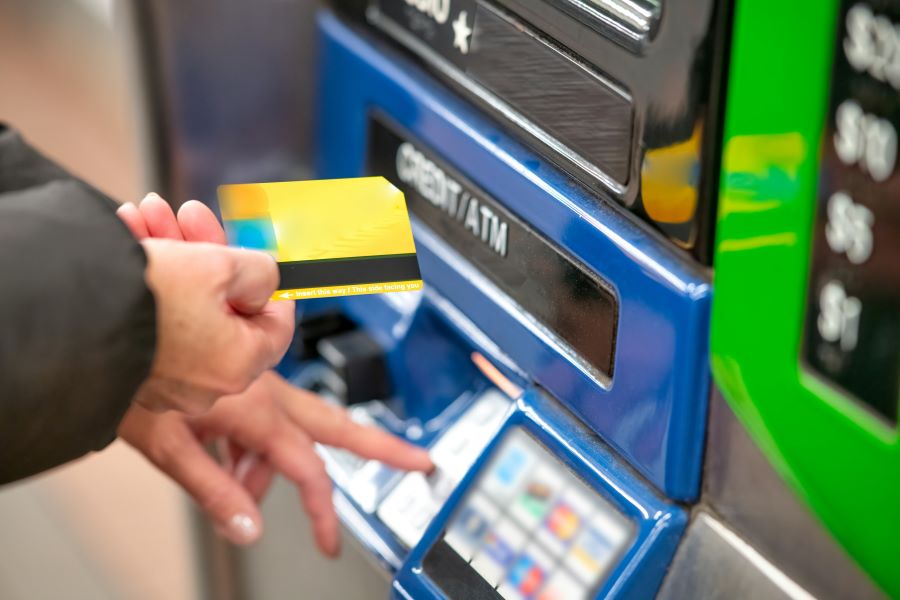In the world of finance, we often encounter the terms ‘debit card’ and ‘credit card’ and to someone new to adulthood, these two words can be quite confusing. Both are payment methods that offer convenience and ease of online money transactions. However, upon closer examination, we have found out that these two are fundamentally different. This article aims to demystify the key credit and debit card differences for the unversed.
Basic Definition and Difference between Debit Card and Credit Card
A debit card, also known as an ATM card, is directly linked to our bank account. When we use a debit card for purchases, the money is immediately deducted from our account. We may think of it as a digital version of our wallet, only more convenient and safer than carrying around cash.
On the other hand, a credit card allows us to borrow money from a credit card issuer up to a certain limit to make purchases or withdraw cash. It’s like a loan, where we are required to pay back the amount spent, along with any interest accrued if the balance isn’t paid in full each month.
Now that we know the one major difference between ATM and credit card, let us dive deep into all the other key differences between these two kinds of financial services.
Also Read: How to withdraw cash from a credit card
Spending Limit
With a debit card, our spending limit is dictated by the amount of money in our bank account. If we tend to overspend, a debit card can help maintain financial discipline since we can only spend what we have.
For credit cards, our spending limit, or credit limit, is determined by the credit card issuer based on our credit history, income, and repayment capacity. Credit cards can provide greater purchasing power but might lead to overspending and debt if not managed carefully. Different credit card plans come with different credit limit, and we may be able to get a higher credit limit as per our creditworthiness, that determines our CIBIL score.
Interest and Fees
When we make a purchase with a debit card, there are typically no interests or fees, unless we overdraw our account.
For credit cards, if we don’t pay off our balance in full each month, we get charged interest on our outstanding balance. Additionally, credit cards often come with annual fees, late payment fees, and cash advance fees.

Approval
A debit card gets issued easily as soon as we open a bank account. We don’t need any liability or collaterals for the approval of a debit card.
Whereas, when we want to avail a credit card, the bank does take some time to approve the application process as the credit history gets taken into consideration.
Credit Building
One of the significant differences between debit and credit cards is their impact on our credit score. Debit card usage does not influence our credit score as it doesn’t involve borrowing money.
On the contrary, responsible credit card usage can help build a healthy credit score, which can be beneficial when applying for loans in the future. However, late payments or maxing out our credit card can negatively affect our credit score. This is where basic credit card eligibility comes into the picture as well.
Security
Both debit and credit cards offer a measure of protection against fraudulent transactions. However, credit cards often provide more robust security features and fraud protection. If our credit card is used fraudulently, our liability is typically limited. With a debit card, our liability can depend on how quickly we report the loss and how much savings we have in our account.
Privileges
Debit cards don’t come with any offers or rewards system when we open an account with a bank or a lender. We also typically don’t get any reward points with the usage of a debit card.
In case of credit cards, most banks and lenders offer a variety of offers and discounts that can be availed by us within a stipulated time. We also get special reward points every time we use our credit card for an online or offline purchase.
Also Read: How to get cashback on credit card bill payment?
In essence, both debit and credit cards have their unique advantages and disadvantages. A debit card is an excellent tool for budget control, whereas a credit card can be a valuable asset for building credit and making larger purchases. The key is to understand their differences and use them wisely based on our financial needs and habits. Remember, responsible financial management is crucial, whether we prefer using a debit card, a credit card, or both.


 Get App
Get App  Airtel Store
Airtel Store  Login
Login 


